Education Law Center executive director Deborah Gordon Klehr wrote about the history of school funding lawsuits that have been filed in dozens of states besides Pennsylvania. “We see from the experience of other states that school funding lawsuits have been strikingly successful at moving the needle toward fairness,” she wrote. “Decisions in such lawsuits spur more state revenue for schools, resulting in better academic and life outcomes for children.” Read her full column from the public interest page of the Sept. 20, 2021, Legal Intelligencer.
Month: September 2021
ELC and Partners Call for Mask Mandate
The Education Law Center, alongside four dozen partner organizations throughout Pennsylvania, called for a universal mask mandate for all Pennsylvania public schools, with appropriate exceptions for students and school staff with qualifying disabilities. You can read the letter to the governor and secretaries of education and health here and the letter to the General Assembly here. We applaud the Wolf Administration’s subsequent announcement acknowledging the ongoing health pandemic and related need to ensure safe learning by issuing a universal statewide mask mandate for all Pennsylvania public schools, effective September 7.
Trial Date in School Funding Lawsuit Now Scheduled for Nov. 12
Despite an unanticipated one-month delay, public school students in Pennsylvania will soon have their day in court. Commonwealth Court Judge Renée Cohn Jubelirer has scheduled a trial start date of November 12, 2021, in our historic lawsuit challenging Pennsylvania’s school funding system, William Penn School District et al. v. Pennsylvania Department of Education et al.
The judge announced the new trial date in a September 17, 2021 order. Trial was previously scheduled to begin on October 12.
Attorneys expect the trial in Harrisburg to run through December. A pretrial conference was scheduled for Sept. 29. Read our latest press release about the case.
To stay abreast of the case, go to the Fund Our Schools PA website, a joint project of the Education Law Center and our co-counsel, the Public Interest Law Center. For case documents, go to our Cases page.
Judge Sets Oct. 12 Start Date for Trial in Historic Pa. School Funding Lawsuit
Public school students in Pennsylvania will soon have their day in court. A Commonwealth Court judge has scheduled a trial start date of October 12, 2021, in our historic lawsuit challenging Pennsylvania’s school funding system, William Penn School District et al. v. Pennsylvania Department of Education et al.
Attorneys expect the trial in Harrisburg to last through much of the fall. A final pretrial conference was scheduled for Sept. 29. Read our press release about the trial and the judge’s order.
To stay abreast of the case, go to the Fund Our Schools PA website, a joint project of the Education Law Center and our co-counsel, the Public Interest Law Center. For case documents, go to our Cases page.
Historic school funding trial date moved to Oct. 12
There is a new start date for the trial in our historic lawsuit challenging Pennsylvania’s school funding system. The date is moved back a month to Oct.12.
The later date allow superintendents and other petitioners who filed the case against state officials additional time to provide up-to-date specifics to supplement the evidence and testimony gathered during earlier stages of the litigation.
Read coverage of the lawsuit and the impending trial from the Times Leader here.
Pa.’s poorest school districts will get more money next year. Public education advocates say the budget still falls short.
Pennsylvania’s state legislature approved a new budget for 2021-22 but chose to put billions into a Rainy Day Fund rather than addressing the urgent need to address adequacy gaps facing many school districts. Education Law Center executive director Deborah Gordon Klehr, like other advocates, sees the budget deal as a missed opportunity.
Read coverage of the new budget and our school funding lawsuit from the June 28, 2021 Philadelphia Inquirer here.
2021 Back-to-School Guide for Pennsylvania Public School Students
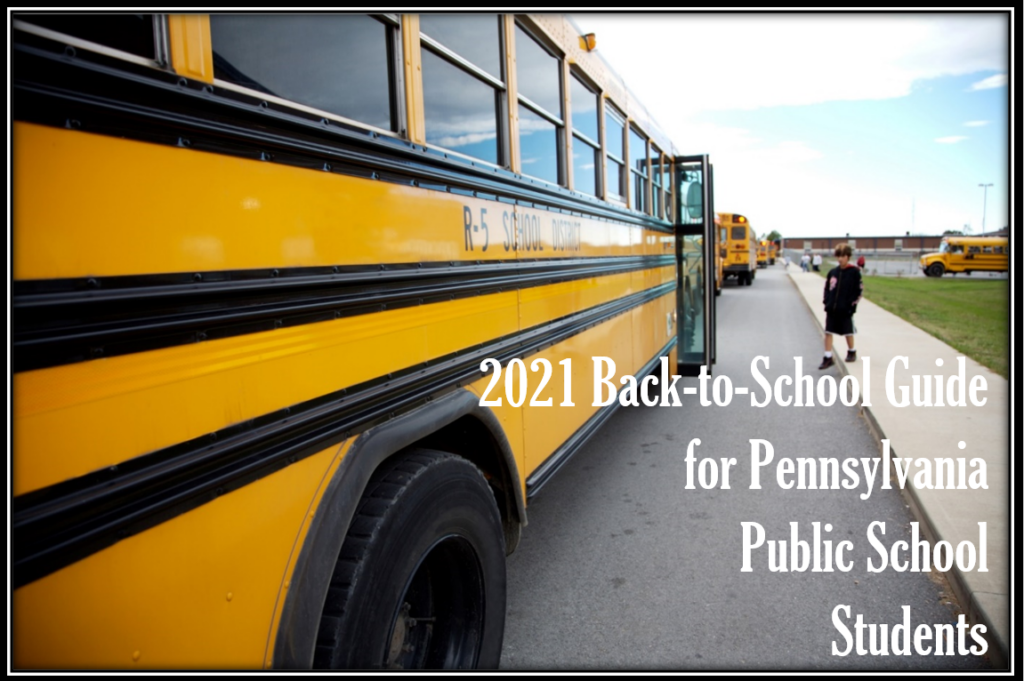
The Education Law Center (ELC) has updated our annual “Back-to-School” guide with publications on various education topics to help families, students, and child-serving professionals.
Skip to a particular topic with these links:
- Affirming & Safe Schools, Free from Racism
- Student Enrollment
- School Discipline
- Addressing Attendance Barriers (Truancy)
- Bullying & Harassment
- Students with Disabilities – IEP, 504 Plan
- Early Childhood Education
- Students Involved in Foster Care & Juvenile Justice Systems
- Students Experiencing Homelessness
- Multilingual & Immigrant Students
- LGBTQ & Non-Binary or Gender-Nonconforming Students
- Self-Advocacy Tools
If you have questions about a particular issue at your school, please call ELC’s helpline at 215-238-6970 (Eastern and Central PA) or 412-258-2120 (Western PA).
In addition to understanding the legal rights explained in this guide, you can also visit your school district’s website for specific information about how it plans to educate and provide supports for students. Check your school’s policies to see if your children may have protections that go beyond the scope of this guide. And check back with us as we will continue to update our materials throughout the school year.
* * *
As students return from extended school closures because of COVID-19, school days may look very different. While students and families continue to face unprecedented challenges, they continue to have important education rights and protections under state and federal laws that ELC is committed to advancing. Our students also remain deserving of equitable, affirming, and culturally responsive school spaces free from racism. Black Lives Matter!
As champions for education justice, we must address the reality that for too many students and families, schools can be places of deep harm and glaring racism, reinforcing systemic oppression. Those inequities – and the need for supportive schools – have grown more visible. Schools have been struggling through the pandemic, amid police brutality and racist violence against communities of color, COVID-related attacks against Asians, the mass detainment and removal of immigrants, and an unprecedented number of unaccompanied youth seeking refuge in our communities and schools. Schools instead must work to be places of learning, healing, and opportunity for the students they are charged with serving.
As school resumes, ELC urges our partners, schools, and policymakers to prioritize equity and to confront the legacies of anti-Black racism, ableism informed by racism, and other systemic and intersectional inequities in schools.
Schools must also keep children and teachers and their families safe from COVID-19. The Centers for Disease Control recommends universal indoor masking in schools for adults and all children over the age of 2. Under an order signed by Pennsylvania’s Acting Secretary of Health, face coverings are required to be worn in all school entities, including school districts, brick-and-mortar and cyber charter schools, private and parochial schools, career and technical centers, intermediate units, and early learning and other child care settings, effective September 7, 2021, with appropriate exceptions for students and school staff with qualifying disabilities.
Parents have the right to evidence-based, clearly communicated plans for how schools plan to keep children safe during COVID, particularly in communities of color where the incidence of the virus is higher and students are more at risk.

The Education Law Center-PA (ELC) is a nonprofit, legal advocacy organization with offices in Philadelphia and Pittsburgh, dedicated to ensuring that all children in Pennsylvania have access to a quality public education. Through legal representation, impact litigation, community engagement, and policy advocacy, ELC advances the rights of underserved children, including children living in poverty, children of color, children in the foster care and juvenile justice systems, children with disabilities, English learners, LGBTQ students, and children experiencing homelessness.
ELC’s publications provide a general statement of the law. However, each situation is different. If you have questions about how the law applies to a particular situation, contact ELC’s Helpline for information and advice or call 215-238-6970 (Eastern and Central PA) or 412-258-2120 (Western PA) ― or contact another attorney of your choice.
1. AFFIRMING & SAFE SCHOOLS FREE FROM RACISM
Back-to-School Basics:
We know that schools often fail to provide equitable, safe, and affirming environments for all students, particularly students of color. Alarmingly, incidents of racial hate and abuse are on the rise. All schools in Pennsylvania should invest in anti-racist education, develop comprehensive equity policies and practices to enable students to thrive, and ensure that responses to incidents of hate address school climate as a whole. No school community is immune from the systemic and structural racism that pervades our country and culture. Educators and administrators have a legal obligation not to stay silent and to act to confront and prevent racial discrimination, including racist harassment in schools.
Schools are legally obligated to ensure that students are not being denied opportunities, treated differently, discriminated against, or harassed because of their race, color, national origin, or immigration status. Schools must have policies and practices to prevent and address unequal treatment like discrimination and harassment.
Need Help?
- The Right to Be Free from Racism at School (Updated August 2021)
- Promising Practices to Build Anti-Racist and Affirming School Communities
- Self-Advocacy Tool: Request for Bullying and Harassment Investigation
- Self-Advocacy Tool: Bullying and Harassment Complaint Form Checklist
- Online and Hybrid Learning: An Equity Checklist for Schools
What’s New?
ELC has updated our Right To Be Free From Racism At School fact sheet. It includes key student rights around self-expression, such as wearing one’s hair in a culturally expressive way; a discussion of the right to be free from racial harassment and discrimination; and a list of concrete steps schools can take to create affirming educational environments.
Check out our linked resources to learn more about the ways restorative justice practices and polices (adopted from the knowledge and cultures of some Indigenous peoples) can be used in schools, and about how to address racially biased and subjective school discipline that results in Black and Brown students being denied educational opportunities and pushed towards systems of control and incarceration. Make sure every member of the school community knows their rights and how to interrupt racism.
ELC contributed to a valuable new report issued by the Pennsylvania Advisory Committee to the U.S.Commission on Civil Rights, which exposes the discriminatory nature of exclusionary discipline and its impact on students of color, LBGTQIA students, and students with disabilities, and makes recommendations to address and remedy inequitable conditions in Pennsylvania schools. We urge school and community leaders to invest in our schools, students, and communities, and disinvest from school police and punitive, exclusionary discipline.
Say Their Names
Police brutality against Black people and people of color is longstanding and continues to go largely unaddressed. But in the wake of the horrific police killings of George Floyd, Breanna Taylor, M’Khia Bryant, Adam Toledo, and many others, an enduring effort by students and community and civil rights groups to remove police from public schools has emerged as a path forward, with dozens of school districts severing ties with police or reducing police presence. More about this work is available from Dignity in Schools, the Advancement Project, and ACLU of Pennsylvania.
Black and Brown communities, hardest hit by the coronavirus, have also borne the brunt of school disruption, receiving diminished educational services. And students in underfunded school districts have been subjected to deplorable school building conditions. See ELC’s fact sheet on toxic schools for related information on how to remedy these conditions and ensure children of color have every opportunity to learn and grow. Explore specific investments schools can make to benefit Black girls and students of color.
Censorship at School Board Meetings
Learn more about why ELC supports teaching about race, racism, the principles of critical race theory, and other curriculum that support culturally relevant teaching and seek to expose and eliminate biases. Some parents and elected officials are calling on school boards to ban or substantially limit historically accurate teaching that covers the important subjects of race and racism. Together, we are countering these attacks; we must hold school leaders accountable for making sure that students have access to accurate history.
2. STUDENT ENROLLMENT
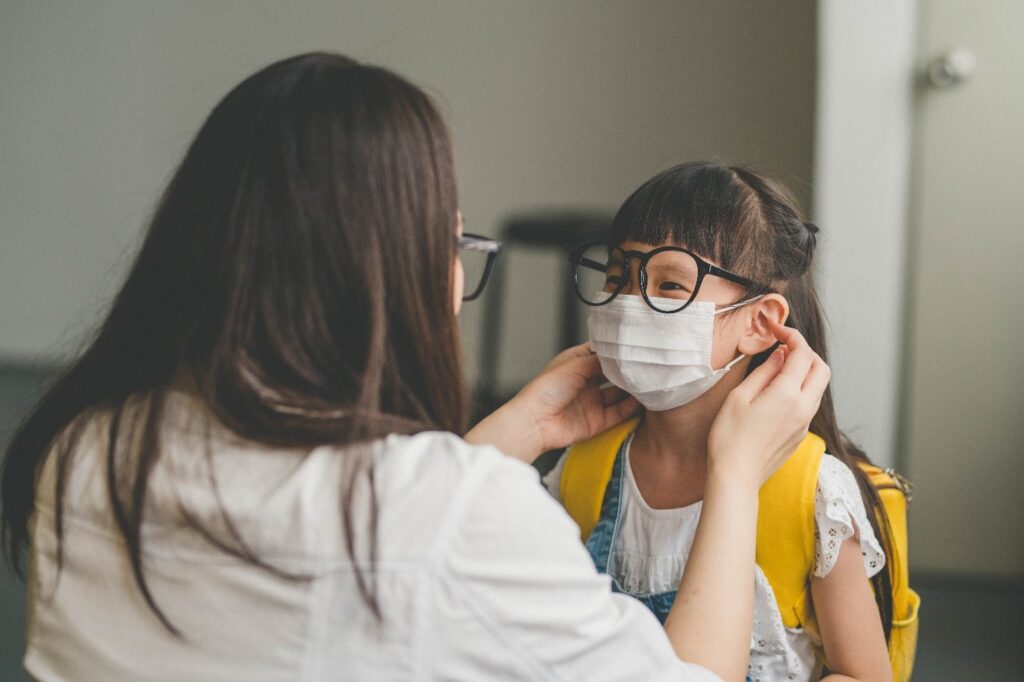
Back-to-School Basics:
Students have the right to be enrolled in school within five days of submitting only four documents: proof of the child’s age, proof of where the child lives, immunization records, and a sworn statement of disciplinary record. Schools can never ask students and caregivers about immigration status or ask for proof of immigration status. Nor can they discriminate against students in other ways regarding enrollment and school placement based on immigration status, race, color, sex, religion, disability, sexual orientation, gender identity, or a student’s status as pregnant or parenting.
Investigative reporting and ELC’s experience reveals troubling racial bias and anti-Black racism in enrollment practices. The students who are most likely to be disenrolled, suspected of residency fraud, or subjected to residency hearings are disproportionately Black and Brown students. ELC has successfully challenged such practices and seeks to uphold state guidance instructing that school districts and charter schools must be “flexible in verifying residency, and should consider what information is reasonable in light of the family’s situation.”
Schools can exclude students who are not immunized and can mark students as having unexcused absences until they are immunized or provide a documented exemption, with some limited exemptions. Students in care and students experiencing homelessness have additional enrollment protections, including around immunization. Please see our School Immunization Requirements in Pennsylvania fact sheet to learn more.
Need Help?
- How to Enroll a Child in Public School
- How to Enroll a Child Living with Someone Other Than Their Parent
- Rights of Linguistically Diverse Caregivers to Enroll Children in School
- Enrollment Complaint Process
- School Immunization Requirements in Pennsylvania
- Self-Advocacy Tool: Enrollment Complaint Letter
- Self-Advocacy Tool: Sworn Statement by Resident Under § 13-1302
What’s New?
Act 66 – Repeating or Adding a Year of School: This law allows parents to decide whether they want their child to repeat a grade for the 2021-2022 school year. It also allows students with disabilities who were enrolled in school for the 2020-2021 school year and turned 21 during the 2020-2021 school year or this past summer to stay in school for an additional year. The deadline to select either option was on July 15, 2021. If parents or caregivers missed this deadline but still want to take advantage of these provisions, they should reach out to their child’s school to discuss their options.
Act 110: This law concerns the educational placement of students who have a conviction or adjudication of sexual assault of another student who attends the same school. Parents and guardians must make certain disclosures upon their child’s enrollment. See this fact sheet for more information.
Act 158 and Act 6 – New Graduation Requirements: These laws set forth five alternative pathways for meeting new statewide high school graduation requirements that will apply to students graduating in 2023.
Equity in virtual learning at your home school or district: Since some schools may still be offering a virtual or remote education for some or all students, ELC has prepared a checklist as a guide to ensure that schools are serving all students equitably.
Considering a cyber charter school for your child? If you have questions about how cyber charters work, check out this webinar. Or visit the website Check Before You Choose: You will find information about teacher certification, performance ratings, supervision, and hours of instruction, and learn ways in which cyber charters differ from brick-and-mortar schools. For example, most cyber charters require a parent or guardian to serve as a learning coach for their child. For K-5, this means supervising the child’s schoolwork for an average of about five hours per day.
Cyber charter schools, like all charter schools, are public schools, required under the law to serve all students, including those with IEPs and multilingual students. But they may have limited experience doing so. To find out whether a Pennsylvania cyber charter school has experience serving English learners, click here, search for the school by name, and click on the tab labeled “School Fast Facts.” To find out whether the cyber charter school serves children with your child’s type of disability, click here, scroll down to the name of the school, and click on the report for the most recent year.
3. SCHOOL DISCIPLINE
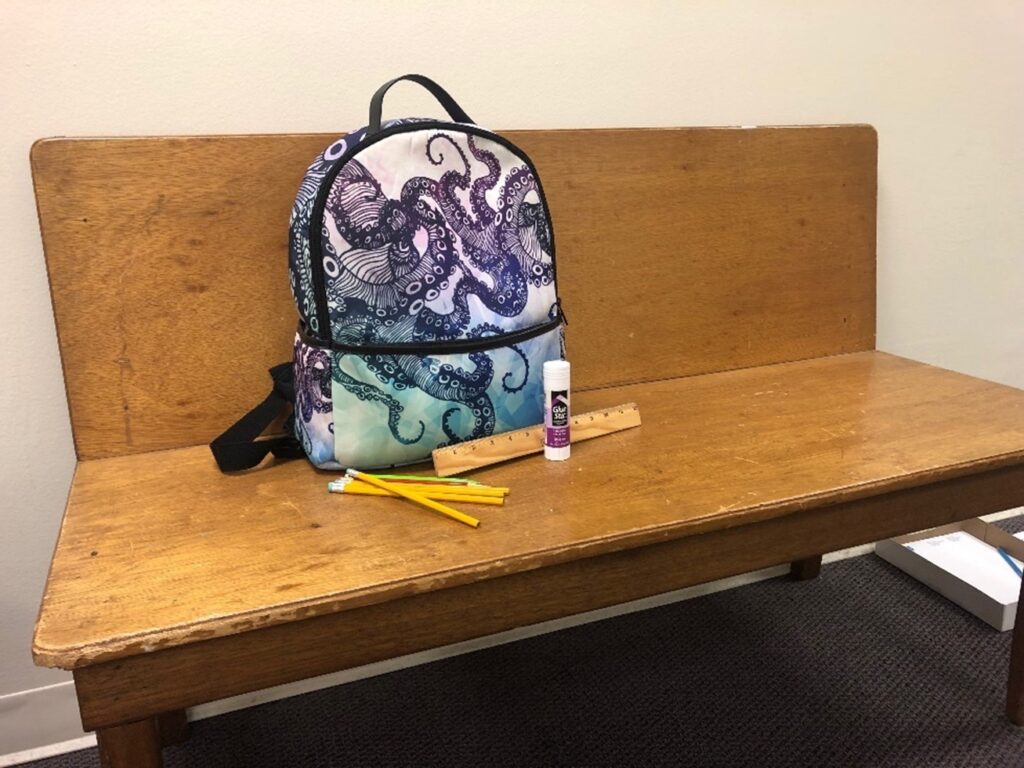
Back-to-School Basics:
Students have important rights and protections when facing exclusionary school discipline (e.g., suspension, expulsion, and disciplinary transfer). These include the right to proper notice, the right to ask questions, the right to an appropriate hearing, and in most cases, the right to receive education services in the interim and after exclusion.
The disproportionate push-out of Black and Brown students is well documented in Pennsylvania and nationally: Black students are three times as likely as white students to be suspended due to discriminatory enforcement of school discipline. As the number of suspensions has increased over time, so have racial disparities. A joint report of the U.S. Commission on Civil Rights and the U.S. Government Accountability Office explains, “Students of color as a whole, as well as by individual racial group, do not commit more disciplinable offenses than their white peers ‒ but Black students, Latino students, and Native American students in the aggregate receive substantially more school discipline than their white peers and receive harsher and longer punishments than their white peers receive for like offenses.”
Discipline may look different if your child is still learning from home through a virtual platform. If your child is excluded from the virtual classroom, you still have the rights explained in the fact sheets below.
Need Help?
- Suspensions in Pennsylvania
- Expulsions in Pennsylvania
- Alternative Education for Disruptive Youth (AEDY)
- Alternative Education for Students with Disabilities
- Alternative Education for English Learners
- Student Rights to Free Speech and Expression
What’s New?
Act 110: This law concerns the educational placement of students who have a conviction or adjudication of sexual assault of another student in the same school. Parents and guardians must make certain disclosures upon their child’s enrollment. See this fact sheet for more information.
See our Student Rights to Free Speech and Expression fact sheet for new information and examples. Generally, a school only has the authority to restrict or punish students for speech that happens at school or a school-sponsored event or on the way to or from school. A recent Supreme Court case reinforced students’ rights to expression outside of school and on social media.
4. ADDRESSING ATTENDANCE BARRIERS (TRUANCY)

Back-to-School Basics:
Pennsylvania requires that all students go to school from age 6 until age 18 or graduation. This period is called “compulsory school age.” Legal consequences can arise when students have unexcused absences. If a student accrues three unexcused absences, they are considered “truant” under the law. If a student has six or more unexcused absences, they are considered “habitually truant” under the law. Schools must take steps to improve attendance for students who are habitually truant, including holding attendance improvement conferences to identify and address the reason for absences.
As COVID-19 continues, schools are still legally required to protect students’ rights and work with families to improve school attendance and participation, regardless of whether students are learning in-person, through a hybrid model, or virtually. If these steps are taken and attendance does not improve, parents and students can face serious legal consequences, including fines and jail time. While ELC disagrees with these consequences, the law allows schools and decision-makers to impose them.
While there is limited research regarding racial disparities in truancy involvement overall, it is well documented that punishments imposed following non-attendance are disproportionately applied to Black and Brown students. For example, Black, Asian, and Latinx students are more likely to receive a second truancy petition than white youth, and Black youth are twice as likely to be adjudicated dependent for not attending school than their white peers. Families of color are also more likely to encounter barriers to getting schools to keep accurate attendance records as is required by law. They are more likely to come into contact with systems of child welfare and face fines, fees, and jail time as a result of disparate enforcement of compulsory school law and penalties. ELC has been involved in cases where responses to non-attendance of students of color are disproportionately harsher – such as imposing sanctions of jail time, swifter referrals to dependency court, referrals of youth to residential placement, and heightened police interaction with families.
Need Help?
- Addressing Attendance Barriers (‘Truancy’) & School Attendance – FAQs
- A Judge’s Guide to Attendance Barriers and Act 138
- Self-Advocacy Tools: Attendance Barriers Screeners
- Self-Advocacy Tool: Request for Attendance Record Correction
What’s New?
Changes to Pennsylvania’s compulsory school law went into effect during the 2020-2021 school year. Now, all children in Pennsylvania must start school no later than age 6 and remain in school until graduation or age 18, whichever is sooner.
Schools are required to take attendance, track student participation, and enforce compulsory school laws during COVID-19. Schools may be using different policies to track attendance and participation if students are learning virtually or hybrid. In addition, some schools have expanded the ways that families can submit excuse notes for absences including through text or internet-based forms. Check out your school’s website for information about how attendance will work this year, what attendance policies may apply to your child, and whether changes have been made due to the pandemic.
To learn more, check our new series of Attendance Barrier Screening Tools that help families, schools, and Magisterial District Court judges ‒ the three key players in the truancy context ‒ identify and address attendance barriers while upholding the legal rights of students and families. If your family or your child age 15 or older has been invited to a School Attendance Improvement Conference with the school, consider completing the Family Screening Tool so that your school can identify and address attendance barriers.
5. BULLYING AND HARASSMENT
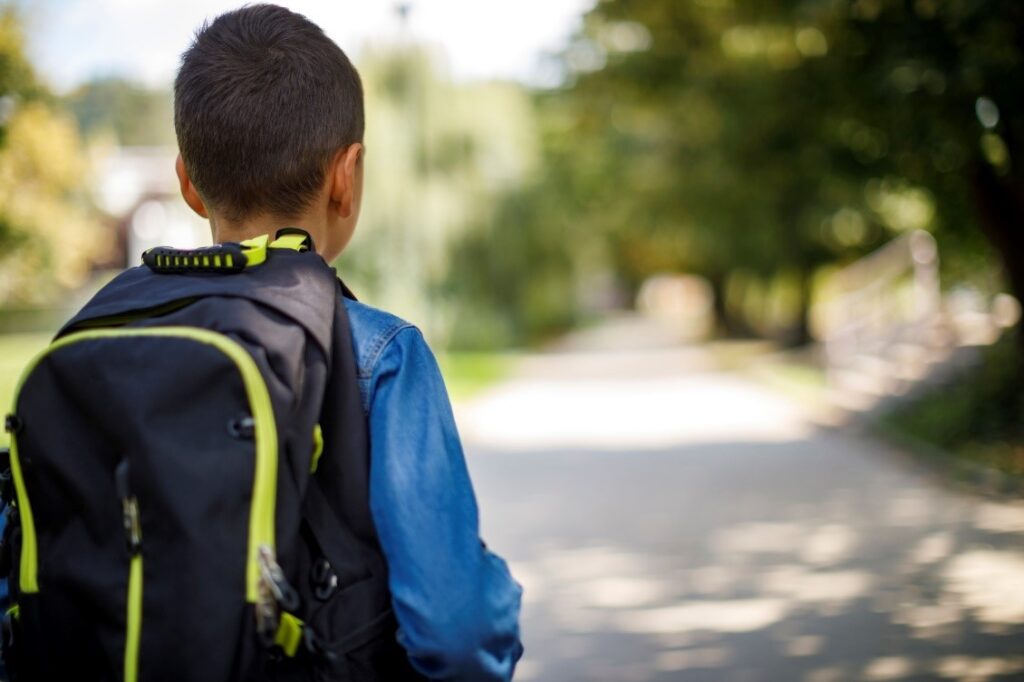
Back-to-School Basics:
Bullying and harassment are serious issues that can significantly affect a child’s ability to learn and impact a child throughout their life. All students have the right to be free from bullying and harassment in school ‒ whether it is verbal, written, graphic, physical, or online. Pennsylvania schools are required by law to have written policies against bullying and harassment and must investigate and address complaints.
Schools should be aware that students of color, students with disabilities, and LGBTQ students are disproportionately subjected to bullying and harassment, and too often disciplined for behavior that follows the bullying/harassment. Behavior may qualify as “harassment” if the offensive conduct relates to race, color, national origin/ethnicity, gender, gender identity, sexual orientation, age, disability, or religion. If your child is experiencing bullying or harassment, keep detailed records of each incident and request in writing that the school take action.
Cyberbullying ‒ bullying or harassment that takes place over digital devices or the internet – is a growing problem. Studies indicate that a majority of students of color have been subjected to racially discriminatory cyberbullying, and LGBTQ students and students with disabilities are also at higher risk of cyberbullying.
School staff must intervene to interrupt and prevent any bullying or harassment, using developmentally appropriate interventions, including if the behavior takes place in-person at school or if the school knows that a student is being bullied or harassed by another student online – including in virtual school sessions – or at any activity sponsored, supervised, or sanctioned by the school.
Need Help?
- What Can I Do If My Child is Bullied or Harassed? A Parent’s Guide to Advocacy in Pennsylvania Public Schools
- Cyberbullying
- Self-Advocacy Tool: Request for Bullying or Harassment Investigation
- Self-Advocacy Tool: Bullying and Harassment Complaint Form Checklist
What’s New?
Students attending school online have the same rights to be free of bullying and harassment, and schools have the same obligation to promptly and effectively intervene to stop the offensive actions. For example, schools need to provide supervision and support in the online chat programs or other communications platforms they provide for accessing instruction, just as they should be supervising and intervening in bullying or harassment that may happen in the hallway or classroom at school. If a student experiences bullying or harassment in their virtual school model, follow the recommendations in our parent’s guide to collect information and report it to the school.
Title IX is a federal civil rights law that prohibits sex discrimination in schools; it has been used for decades to ensure that schools respond appropriately to sexual violence and other sexual harassment in schools. In 2020, the Trump administration released harmful new Title IX rules that sought to shield harassers from consequences and prevent institutions from being held accountable for addressing and preventing sexual harassment. Advocates are challenging the Trump administration’s Title IX rules, and the Biden administration may issue revised rules. Read more here: The Disinformation You’re Falling for on Title IX.
6. STUDENTS WITH DISABILITIES
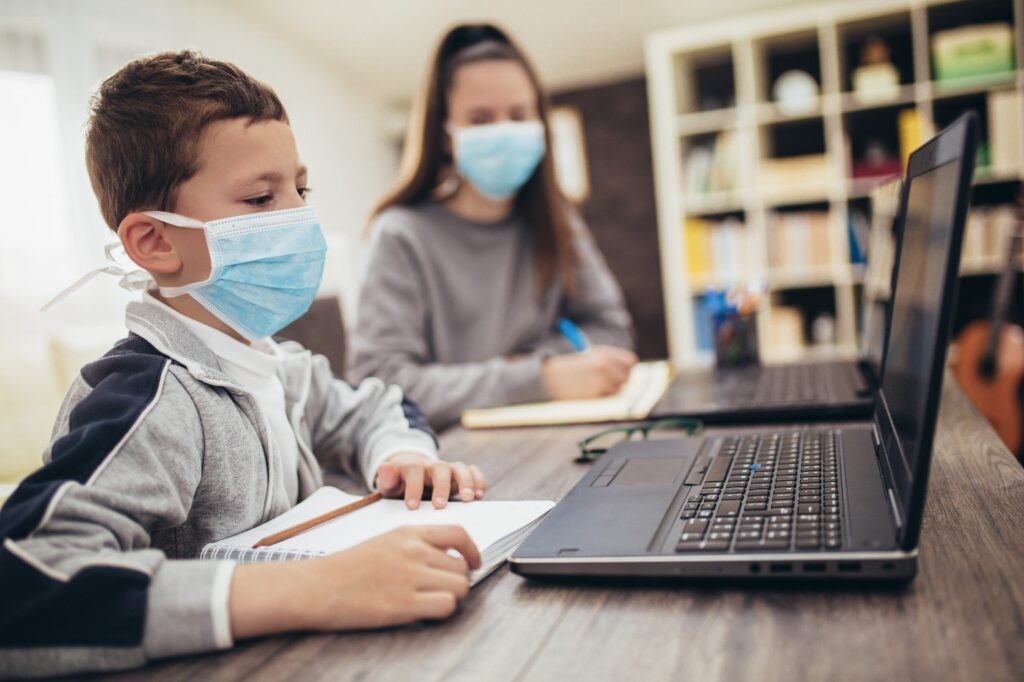
Individualized Education Programs (IEPs)
Back-to-School Basics:
Students who have a disability that impacts their learning have the right to a “free appropriate public education” (commonly called a FAPE), which is a planned program of education and special services that takes account of a student’s individual needs.
Notably, Black and Brown students are more likely to be misidentified as needing special education, placed in more restrictive settings, and excluded from school due to harsher discipline. In addition, although parents have the right to participate in the special education process and consent to or refuse particular services, Black and Brown parents are more likely to be excluded from meaningful participation in this process. Mounting research and lived experience demonstrate the harmful impact on student outcomes from special education resulting from this significant disproportionality in special education based on race.
Students with disabilities and their parents have robust rights to challenge decisions made by schools with which they disagree, including misidentification, restrictive placements, and harsh discipline. These rights have remained intact and continue despite school closures and other changes related to the COVID-19 pandemic. Parents should be included in the creation of individualized plans for their students with disabilities to fully access in-person learning, including required modifications to a school’s health and safety plan, and remote or hybrid learning. Students with disabilities should receive all necessary services, including related services, to address their needs.
Need Help?
- Guide for Parents and Advocates on the Right to Special Education in Pennsylvania
- Special Education Evaluations
- Resolving Special Education Disagreements
- Self-Advocacy Tool: Request for Evaluation to Determine Eligibility for Special Education
- Self-Advocacy Tool: Request for Re-Evaluation
- Self-Advocacy Tool: Request to Convene an IEP Meeting
- Self-Advocacy Tool: Request for Independent Education Evaluation (IEE)
- Self-Advocacy Tool: Request for Mediation to Resolve Special Education Disputes
- Self-Advocacy Tool: Request for Due Process to Resolve Special Education Disputes
What’s New?
As schools return to in-person learning, they are implementing comprehensive plans to keep students safe from COVID-19. Some students with disabilities may require modifications to these health and safety plans due to their disabilities. Parents have a right to request IEP meetings to properly plan for or respond to concerns that arise related to the intersection of health and safety plans and a student’s disability.
Schools are required to determine the impact of educational disruptions resulting from the pandemic and whether each student with a disability requires educational services to make up for this disruption due to the failure to make progress on IEP goals or regression of skills. In Pennsylvania, this is called Covid Compensatory Services (CCS). Each student’s IEP team should individually determine the CCS required to make up for the educational disruption.
Follow the recommendations in the Resolving Special Education Disagreements fact sheet if you disagree with your child’s CCS determination or the plan developed to keep your child safe during in-person learning.
504 Plans
Back-to-School Basics:
If your child has a health condition, physical, mental, or behavioral impairment that “substantially limits” a “major life activity,” and if they need help to participate in or benefit from education or extracurricular programs, they may qualify for accommodations in school, called a “504 Plan.” Regardless of whether your child is attending school remotely or in-person due to COVID-19, your child’s 504 Plan should still provide accommodations and services that are necessary to access learning.
Some students with disabilities may require modifications to these health and safety plans due to their disabilities. Parents have a right to request 504 Plan meetings in order to properly plan for or respond to concerns that arise related to the intersection of health and safety plans and a student’s disability.
Need Help?
- What Can a Parent Do If a Child Has a Health Condition that Requires Accommodations in School (Materials to request a 504 Plan)
- Self-Advocacy Tool: Request for Determination of Eligibility for a Section 504 Plan
7. EARLY CHILDHOOD EDUCATION

Back-to-School Basics:
Children who receive quality early education do better in kindergarten and in school overall. However, disproportionate suspension and expulsion of Black preschool students greatly impacts these outcomes. Black preschool students are more than three times as likely to receive one or more out-of-school suspensions as white preschool students, due to discriminatory school discipline. No evidence exists that students of color engage in more disruptive behavior than white children. Children with disabilities and emotional challenges are also subject to much greater rates of preschool suspension and expulsion.
Due to continued concerns about the long-term impact of preschool suspension and expulsion, the Office of Child Development and Early Learning (OCDEL) is committed to ending this practice in Pennsylvania.
Publicly funded programs such as Head Start, Early Head Start, and Pre-K Counts offer free early childcare and education programs for children from low-income families. The Early Intervention program provides additional services for children with developmental delays and disabilities at no cost to parents, regardless of income. These programs must collaborate to ensure that children are not excluded from preschools disproportionately based on the intersection of race, disability, and gender.
Need Help?
- Early Intervention Questions and Answers
- OCDEL’s Resources for Promoting Inclusion & Reducing Expulsion and Suspension
- ELC Guide to Inclusive Early Education and Early Intervention in PA
What’s New?
Each Intermediate Unit or Elwyn is required to determine the impact of educational disruptions resulting from the pandemic on each young child with a disability. IEP teams should meet to determine whether the young child requires educational services to make up for this disruption due to the failure to make progress on IEP goals or regression of skills. In Pennsylvania, these supplemental services are called COVID Compensatory Services (CCS). Follow the recommendations in the Early Intervention Questions and Answers if you disagree with your child’s CCS determination or the plan developed to address educational disruption due to the pandemic.

8. STUDENTS INVOLVED IN FOSTER CARE
OR JUVENILE JUSTICE SYSTEMS

Back-to-School Basics:
Children involved in the foster care or juvenile justice systems, like all public school students, have the right to a free public education but are more likely to receive an inferior education.
Students in foster care have additional rights to ensure their school environment is stable, despite changes in living arrangements. The right to “school stability” includes the right to remain in the same school even when youth change living placements, the right to enroll in a new school immediately without the required documents, and the right to have an active, involved education decisionmaker.
Students who are placed by court order in a residential facility – including students “adjudicated delinquent” – are entitled to attend the local public school in the district where the facility is located, unless certain exceptions apply.
The continuing trend of overrepresentation of Black and Brown youth in both the juvenile justice and dependency systems is well-documented. For example, the Pennsylvania Juvenile Justice Task Force Report issued in June 2021 disclosed that while Black youth make up 14% of the statewide youth population, they represent 38% of cases in juvenile court, 62% of youth detained before adjudication, and 47% of youth sent to a residential facility. Similarly, Pennsylvania’s Department of Human Services’ Racial Equity Report reveals that Black children are more likely to enter foster care and stay in foster care longer than white children. While Black children make up 14% of the total child population, 35% of children in foster care are Black, and Black children compose 42% of children who have been in foster care for two years or more. Such gross disparities are reflective of racial biases that operate on multiple levels throughout the child welfare, juvenile justice, and education systems.
Need Help?
- Rights of Students in Foster Care and the Juvenile Justice System
- Tips for the New School Year for Children in Foster Care
- School Stability & Immediate Enrollment of Students in Foster Care
- Self-Advocacy Tool: Best Interest Determination for Children in Foster Care
- Toolkit for court-appointed “Educational Decision Makers” (EDMs)
- Two interactive websites for practitioners seeking to improve the law and create better outcomes for children in the foster care and juvenile justice systems:
Blueprint for Change: Education Success for Children in Foster Care and
Blueprint for Change: Education Success for Youth in the Juvenile Justice System.
What’s New?
As we continue to navigate the impact of the COVID-19 crisis, children and youth in the foster care and juvenile justice systems may continue to need additional support and consistent follow-up. Particularly for those in a residential placement, it is possible that access to live instruction, classrooms, and school materials will continue to be limited. For youth in residential settings with disabilities, IEPs have not been updated as is required by law, services have been disrupted, and evaluations may still be incomplete or otherwise out of compliance with the IDEA, in violation of their rights.
Yet, we know that all youth have the right to a quality education and should have all the supports, equipment, and supplies needed to learn. Youth in residential facilities may need a change in placement or access to the local public school. Students with disabilities have the right to request IEP team meetings to ensure they receive the supports and services needed to make meaningful progress and receive a free, appropriate public education. See our fact sheet for more.
Children in foster care continue to have a right to school stability and immediate enrollment, regardless of whether they are attending school in person or through remote learning. For more details, see Tips for the New School Year for Children in Foster Care.
ELC continues to advocate for the rights of students in residential placements through our class action lawsuit on behalf of students who were placed at Glen Mills Schools, where they suffered physical and emotional abuse and were deprived of their right to an education. In our case, Derrick v. Glen Mills Schools, the court upheld the right of students in the juvenile justice system to receive an appropriate and meaningful education, and ordered that the lawsuit can move forward on our claims that students were harmed by a systemic and wholesale failure to provide special education services and a legally compliant general education. The complaint contains graphic descriptions that may be hard to read; the litigation is in discovery stage.
9. STUDENTS EXPERIENCING HOMELESSNESS

Back-to-School Basics:
Students in all public schools, both district and charter, who are experiencing homelessness or housing instability are entitled to school stability and immediate enrollment in school, as well as free transportation to and from school. This includes unaccompanied students experiencing homelessness on their own. A federal law called the McKinney-Vento Act provides students experiencing homelessness a robust array of protections to ensure equal access to an education, from preschool through high school.
These protections do not have a time limit and remain in place until the student is no longer experiencing homelessness, even during COVID-19. McKinney-Vento eligible students have a right to school stability, with transportation provided until the end of the school year in which they secure permanent and adequate housing.
Racial disparities in affordable housing existed long before the COVID-19 pandemic, and yet, data suggests that the pandemic and the ensuing economic fallout are widening these divides, disproportionately impacting students of color who are already overrepresented among students experiencing homelessness. For example, the state’s 2018-19 Homelessness Program Evaluation Report reflects that a majority of schoolchildren experiencing homelessness across the state were Black or Brown.
Need Help?
What’s New?
As students return to school this year, many more students will be McKinney-Vento eligible due to the enduring economic impacts of COVID-19. Black and Brown communities continue to be the hardest hit by the pandemic and are more likely to encounter barriers to accessing permanent and adequate housing due to systemic racism. Schools have a legal obligation to identify students who are experiencing homelessness and ensure they are afforded the full protections of the McKinney-Vento Act.
Universal screening is a practice recommended by the U.S. Department of Education that makes sure all students are asked about whether they have access to permanent and adequate housing, which helps eliminate stigma and makes sure eligible students are identified. ELC created this universal screen to help schools correctly identify students, in compliance with their legal obligations, and connect students to needed supports and protections. It is a best practice to screen students at the beginning of the school year and after every move.
10. MULTILINGUAL STUDENTS; STUDENTS & FAMILIES FROM
LINGUISTICALLY AND CULTURALLY DIVERSE COMMUNITIES

Back-to-School Basics:
All students have the right to attend school, regardless of their immigration status. Schools cannot ask about a student’s or caregiver’s immigration status and cannot require a birth certificate or Social Security number before enrolling a child in school. Students and families from linguistically and culturally diverse communities should receive language services and accommodations that allow them to participate in education regardless of English proficiency.
Students who need to develop English language skills have the right to receive English language instruction as English learners. English learners have many special protections, including the right to learn English (with language instruction such as English as a Second Language or ESL), the right to supports, modifications, and accommodations in their core classes, and the right to be free from harassment based on their race, immigration status, or national origin. Parents whose first language is not English have the right to receive information about their child’s education in a language they understand.
For more information about the rights of immigrant, refugee, and asylee students and families, the U.S. Department of Education has a website with translated resources. Two fact sheets are available in over 10 languages on the rights of English learners to participate in educational programs and the rights of limited English proficient parents and caregivers to receive translation and interpretation for communications with school.
Need Help?
- Rights of Multilingual Learners & Linguistically Diverse Families
- Rights of Linguistically Diverse Caregivers to Enroll Children in School
- Self-Advocacy Tool: Request for Translation and Interpretation Services
- ELC has some fact sheets translated into Spanish, Simplified Chinese, Arabic and Nepali. Call our helpline for more info.
What’s New?
The U.S. Department of Education and the U.S. Department of Justice have jointly issued a fact sheet on “Confronting Discrimination Based on National Origin and Immigration Status,” which explains that public schools must enroll students regardless of immigration status, offer language assistance to students, and communicate educational information to families in languages they understand.
Statewide school closures starting in March 2020 highlighted the ongoing challenges linguistically and culturally diverse communities experience with language access in education.
As the new school year begins, school districts should provide additional educational programming to address COVID-19-related educational disruptions. Information about these opportunities, and in particular programs for English learners, must be provided in multiple languages. Students also have the right to access culturally competent mental health services and additional educational opportunities to remediate educational disruptions from the previous school year with modifications and accommodations that remove language barriers. Students and families should also have information on access to technology and meals and information on health and safety protocols in languages they understand.
11. LGBTQ & NONBINARY OR GENDER-NONCONFORMING STUDENTS

Back-to-School Basics:
LGBTQ and nonbinary or gender-nonconforming (GNC) students have the same rights as other students. Schools are required to intervene and correct policies or behavior that discriminates against students based on sexual orientation or gender identity. In recent years, the United States Supreme Court and multiple federal courts have affirmed the rights of LGBTQ students to attend school as their true selves, free from harassment and discrimination.
Unfortunately, too often LGBTQ students still face discrimination and harassment at school from their classmates or teachers, with insufficient intervention from their schools. Black trans students often face the most harassment and disproportionate discipline. This is illegal.
With COVID-19 school closures that require students to stay at home for virtual classes, there may be additional challenges for LGBTQ students resulting from limited access to community support, lack of in-school counseling, and, in some cases, the difficult circumstances of quarantining with unsupportive family members. Schools have the obligation to support students’ social, emotional, and mental health, including via remote services and virtual meetings for a Gay Sexuality Alliance (GSA) or other student group.
If a student who is transgender, GNC, or nonbinary identifies a chosen name and pronouns, school staff should use that name and pronoun for all interactions, written and verbal, except where required by the law to use a child’s legal name. This includes providing an opportunity to correct the student’s name on any digital platforms a school is using during virtual learning (i.e., display name on Google Classroom). Purposefully and persistently misgendering a student may be harassment under the law.
Need Help?
- Back to School Message for Transgender Students: You belong in our schools, from U.S. Dept. of Justice, U.S. Dept. of Education, and U.S. Dept. of Health and Human Services
- The Rights of LGBTQ, Gender-Nonconforming, & Nonbinary Students
What’s New?
The rights and protections of LGBTQ people have been clarified and affirmed at the highest level. In June 2020, the U.S. Supreme Court issued its decision in Bostock v. Clayton County, establishing that discrimination on the basis of sexual orientation and gender identity is inherently a form of illegal sex discrimination under Title VII. Courts have long analyzed Title IX about education discrimination in the same way as Title VII about employment discrimination, so this case is a powerful message for schools and LGBTQ and gender-nonconforming students too. Another appellate federal court, directly addressing the question of transgender students’ right to access bathroom facilities, held that “A public school may not punish its students for gender nonconformity. Neither may a public school harm transgender students by establishing arbitrary, separate rules for their restroom use.”
In 2020-21, anti-LGBT activists introduced dozens of bills across the country, including in Pennsylvania, to prohibit trans students from participating in school sports on the boys/girls team that aligns with their gender identity. A Pennsylvania bill was discussed at a hearing in August 2021, but Gov. Wolf said he would veto it. These discriminatory bills are being successfully challenged in court.
12. SELF-ADVOCACY TOOLS
This year, ELC created a series of fillable self-advocacy tools for parents, guardians, educational decision makers (EDM), surrogate parents, and advocates to address some of the most common barriers to school success that students encounter. You will find them referenced in the sections above. Each tool is free to use; most are fillable forms.
To learn more about specific education rights students have across a variety of topic areas, please review the sections above and see the fact sheet section of our website.
Need Help?
Enrollment
- Self-Advocacy Tool: Enrollment Complaint Letter
- Self-Advocacy Tool: Sworn Statement by Resident Under § 13-1302
Attendance
- Self-Advocacy Tool: Family Needs Self-Assessment to Address Attendance Barriers
- Self-Advocacy Tool: School Attendance Barriers and McKinney Vento Screener
- Self-Advocacy Tool: MDJ Screener to Address Truancy Referrals
- Self-Advocacy Tool: Request for Attendance Record Correction
Special Education
- Self-Advocacy Tool: Request for Determination of Eligibility for a §504 Plan
- Self-Advocacy Tool: Request for Evaluation to Determine Eligibility for Special Education
- Self-Advocacy Tool: Request for Re-Evaluation
- Self-Advocacy Tool: Request for an Independent Educational Evaluation (IEE)
- Self-Advocacy Tool: Request to Convene an IEP Meeting
- Self-Advocacy Tool: Request for Mediation to Resolve Special Education Disputes
- Self-Advocacy Tool: Request for Due Process to Resolve Special Education Disputes
Multilingual Students and Families
McKinney-Vento Eligible Students (Students Experiencing Homelessness)
Students in Care
Addressing Bullying/Harassment
- Self-Advocacy Tool: Request for Bullying/Harassment Investigation
- Self-Advocacy Tool: Bullying and Harassment Complaint Form Checklist
Finally, for everyone involved with public education in Pennsylvania, one of our back-to-school priorities must be to address the state’s inadequate and unfair funding of schools. Far too many children are returning to Pennsylvania schools that are lacking in resources and student supports. Please participate in the statewide campaign for adequate and equitable funding and follow ELC on Facebook and Twitter and our FundOurSchoolsPA website for updates on our fair funding lawsuit against the state for failure to fund public education under the state Constitution, which goes to trial in Harrisburg on October 12.
